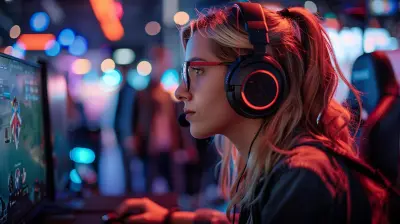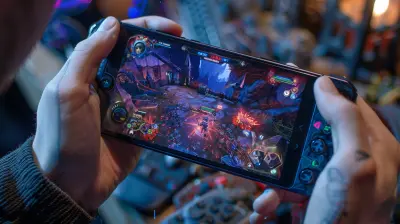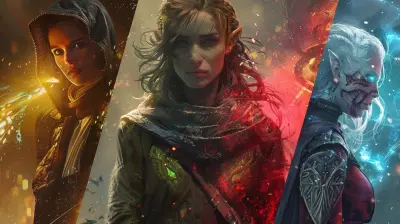How Gaming Communities Are Redefining Online Social Networks
16 August 2025
Let’s be real — the internet is no longer just a tool; it’s our second home. We've gone from simplistic chat rooms to global social platforms that connect billions. But here's a twist most people overlook: gaming communities are quietly — or not so quietly — reshaping what it means to be socially connected online.
These aren’t just spaces to talk strategy or share game clips. They’ve evolved into full-blown ecosystems that rival even the biggest social networks out there. From Discord servers to Twitch streams, guild wars in MMOs to Fortnite dance-offs, gamers are creating and cultivating their own rules of engagement, identity, and digital hangouts.
So, let me take you on a deep dive into how gaming communities are becoming the new social hubs of the digital world — and why more people are logging into game lobbies instead of Facebook.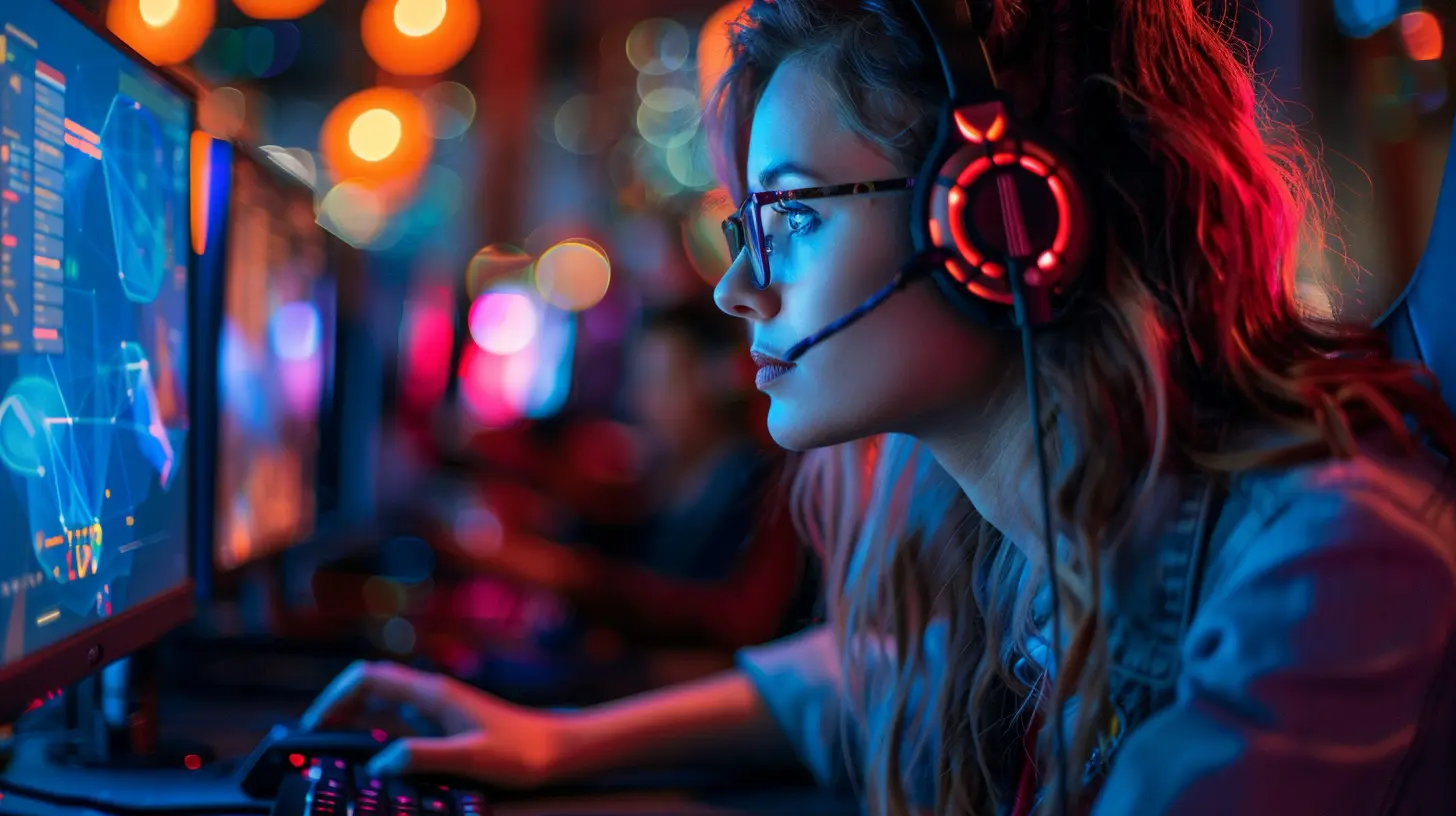
The Shift: From Social Networks to Game-Driven Social Spaces
There was a time when social networking meant checking status updates on Facebook or sending Snaps to your friends. But now? A growing chunk of online interaction is happening in virtual worlds built around games. And it’s not hard to see why.Games bring people together with a shared goal. Whether you're coordinating a takedown in Apex Legends or building a village in Minecraft, you're working, laughing, and sometimes raging with real people. That creates connection — raw, unfiltered, and better than a lifeless newsfeed.
Let’s Talk Numbers
According to Statista, over 3.2 billion people worldwide are digital gamers in 2024. Compare that to the 2.9 billion Facebook users. See the trend? Gamers aren’t just playing; they’re forming tight-knit communities, organizing events, and bonding over shared experiences.
What Makes Gaming Communities So Social?
Gaming communities offer something traditional social media lacks — authenticity through interaction. They’re less about posting and scrolling and more about engaging.1. Real-Time Communication
Platforms like Discord, TeamSpeak, and integrated in-game chats allow players to talk while gaming. This real-time vibe feels like hanging out in someone’s living room rather than texting from a mile away.And guess what? This kind of communication builds stronger relationships. You're celebrating wins, dealing with losses, and probably making inside jokes only your squad would get. That sort of bonding? It's gold.
2. Shared Experiences = Stronger Bonds
Ever survived a boss battle with 1 HP or clutched a 1v4 in Valorant? You remember who you were with, don’t you? Sharing emotional highs and lows creates deeper connections than simply liking someone's vacation selfie.3. Immersive Identities
In gaming spaces, you’re not restricted to your real-world identity. Your avatar can be a space pirate, a warrior, or literally a piece of toast. You get to be whoever you want, and people connect with your actions and personality, not just your face or bio.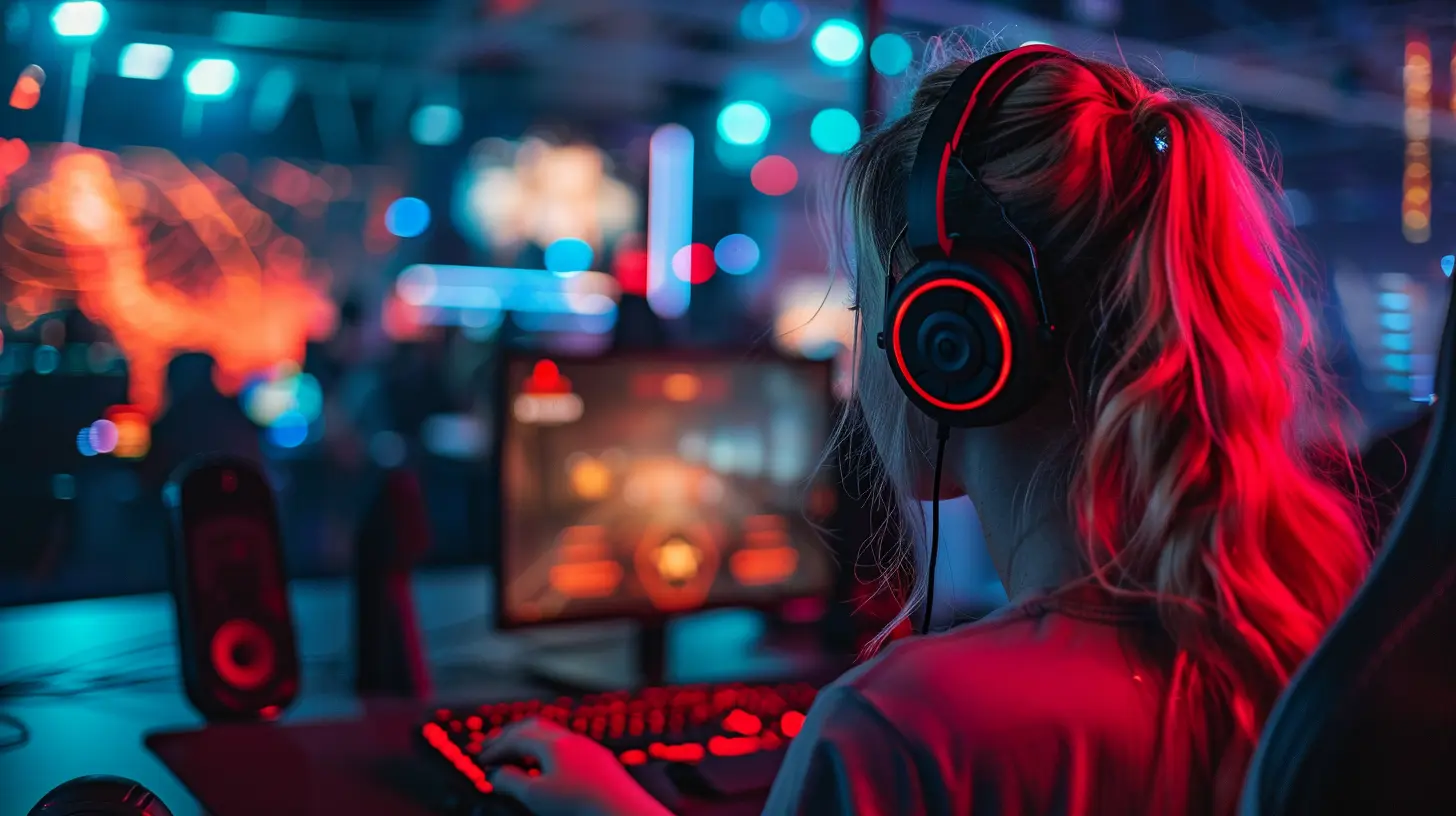
How Gaming Platforms Double as Social Networks
Social networks are meant for sharing, connecting, and communicating. Now look at today’s games and their ecosystems — they check all those boxes and then some.Twitch & YouTube Gaming: The New Digital Town Squares
Watching someone game used to be a niche thing. Now, it’s a billion-dollar industry. Streamers like Pokimane, xQc, and Ninja have audiences that stretch across continents. But these platforms aren’t just for watching — they’re for interacting.Live chats. Emotes. Sub-only Discords. Live donations with messages. These aren’t passive interactions. They’re a two-way street that creates a sense of belonging. People aren’t just fans — they’re part of the community.
Discord: Your New Friend-Hub
Discord started as a tool for gamers, but it’s now a full-blown communication platform. With voice, video, and text chat channels, bots, and robust moderation tools, it’s more versatile than traditional social media. You can:- Host community game nights
- Watch movies together
- Hold Q&A sessions or workshops
- Just hang out and vibe
It’s like a virtual clubhouse where everyone matters — more community-driven than most “social” networks.
MMOs and Online Sandboxes
Games like Final Fantasy XIV, World of Warcraft, and even Roblox aren't just games; they are living, breathing virtual worlds. Players run governments, build economies, and throw actual events — weddings, rallies, and charity drives — inside the game.Tell me that’s not social networking at its finest.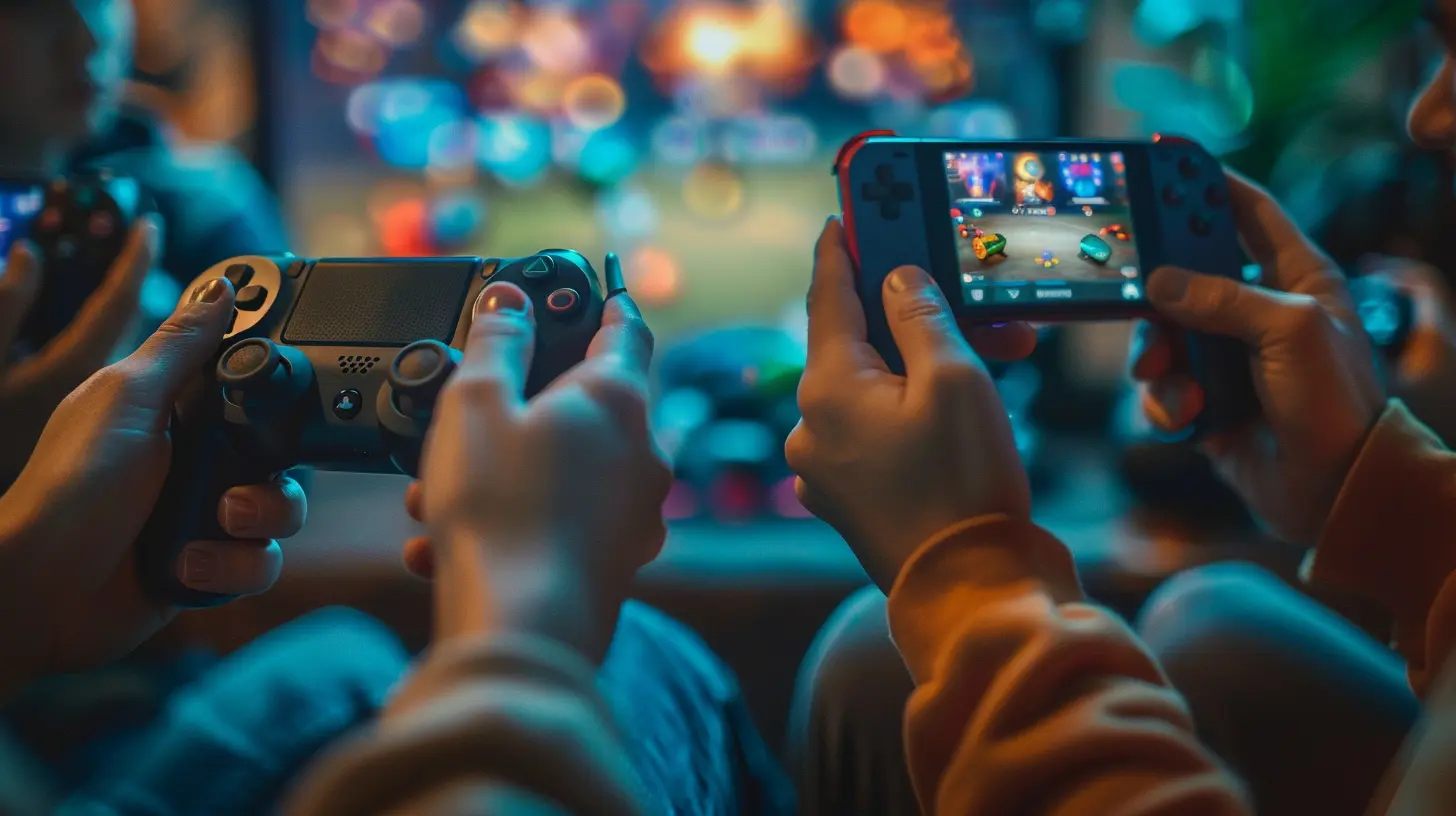
The Rise of Inclusive and Niche Communities
One of the most beautiful things about gaming communities is how inclusive they’re becoming. Sure, the gaming world had a toxic rep back in the early 2000s (remember those salty Xbox Live lobbies?), but things have evolved.Diversity is the New Meta
There are LGBTQ+ guilds. All-women esports teams. Safe spaces for neurodivergent players. And groups for gamers of every ethnicity and background. These aren't just checkboxes; they're places where players can find like-minded souls and be unapologetically themselves.Gaming, especially in spaces like Discord and Reddit, helps people find tribes they didn’t even know they needed.
Language is No Barrier
Thanks to game localization, subtitles, translation mods, and Google Translate's integration, players from different cultures can interact like never before. Gaming is facilitating cross-cultural friendships in a way no social platform truly managed to do at scale.Gaming Influencers and Community Leaders: The New Social Architects
Think social media influencers have clout? So do gaming community leaders — sometimes even more so.Streamer-led communities often mirror fanbases with intense loyalty and emotional connection. But it goes deeper. These influencers are also:
- Setting trends
- Creating shared jargon (think “GG,” “Pog,” “Noob”)
- Hosting charity events
- Shaping social behavior within communities
They’re not just players — they’re leaders, moderators, ringmasters, and often, therapists.
Events, Meetups, and Virtual Hangouts
Gaming communities aren't confined to the screen anymore. Events like TwitchCon, BlizzCon, and even fan-organized conventions bring these digital relationships into the IRL spotlight.Virtual Events Are Here to Stay
We’ve seen epic in-game concerts in Fortnite. Livestreamed award shows in Roblox. Interactive voting for storyline choices in games like Telltale’s Walking Dead. This is the future of entertainment — deeply social, interactive, and designed for digital communities.Mental Health, Belonging, and Safe Spaces
Games have always been about escapism, but they’re fast becoming lifelines. For many, logging into a game isn’t just about XP — it’s about connecting with friends, escaping stress, or finding someone who just gets it.The Mental Health Angle
In a world drowning in curated Instagram posts and toxic comment sections, gaming communities offer something rare — acceptance. Gamers don’t care if you’re dressed up or having a bad day. If you queue for a match or join voice chat, you're in.Many communities even have designated mental health channels, peer support, and access to professionals. That’s light-years beyond what traditional social media offers.
Challenges Gaming Communities Face
It’s not all sunshine and loot boxes. Gaming communities still struggle with:- Toxicity: Trash talk is fine, but racism, sexism, and harassment are real issues. Thankfully, more platforms are cracking down on it.
- Gatekeeping: Some communities can be elitist, making it hard for newbies to feel welcome.
- Over-moderation vs. Freedom: Striking the balance between healthy discussion and admin overload is tricky.
Still, ongoing improvements in community tools, AI moderation, and clearer guidelines are making these spaces safer and friendlier by the day.
So… Are Gaming Communities the Future of Online Social Networks?
Absolutely. And not even in a "maybe someday" kind of way — it's happening now.Gamers are building worlds and friendships that go beyond likes and follows. They’re not just commenting; they’re collaborating. They're not watching from afar; they're participating. Gaming spaces are real-time, relationship-driven, and emotionally rich in a way traditional platforms can’t match.
And if you’re not already part of one? Maybe it’s time to log in and see what you’re missing.
Final Thoughts
Gaming is no longer just a source of entertainment — it's a medium for connection, collaboration, and community building. The lines between games and social networks are blurring fast, and let’s be honest: the gaming world is doing a better job at bringing people together than most traditional platforms.Whether you're a casual player or a hardcore raider, there's a spot for you in these dynamic digital worlds. And who knows? Your next best friend might just be lurking in your next game lobby.
all images in this post were generated using AI tools
Category:
Gaming CommunitiesAuthor:

Luke Baker
Discussion
rate this article
2 comments
Brianna Montgomery
Engagement fosters meaningful connections!
December 27, 2025 at 3:27 PM
Cody McLanahan
This article beautifully highlights the power of gaming communities in fostering genuine connections. It’s heartening to see how these spaces create support and friendship, redefining our online interactions in such meaningful ways.
August 17, 2025 at 4:47 AM

Luke Baker
Thank you for your insightful comment! I'm glad you found the article resonant—gaming communities truly do play a vital role in shaping meaningful connections.
